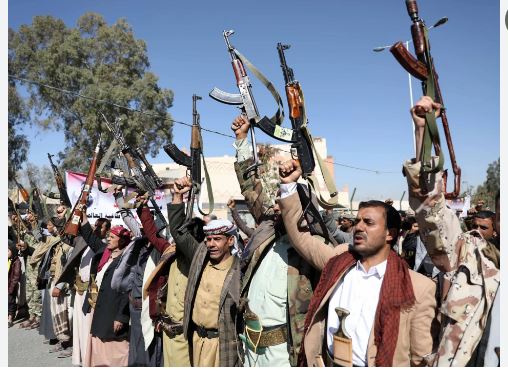
Saudi peace deal with Houthis faces hurdles amidst US plan to label group as terrorists
text_fieldsSaudi Arabia's ambitious plans for a peace deal with Houthi rebels in Yemen are facing significant challenges following Houthi attacks on Israel and the seizure of an Israeli-linked commercial vessel in the Red Sea.
The situation has escalated to the point where the United States is reportedly considering military action against Houthi military sites in Yemen unless the seized ship is released.
Saudi Arabia, eager to extricate itself from a prolonged and controversial military intervention in Yemen's civil war, has summoned the UN-recognized Yemeni government for talks on a revised roadmap.
This roadmap proposes the withdrawal of foreign forces, including Saudi troops, within six months. A key element of the plan involves transferring substantial funds from the oil-rich south to the impoverished north, which is under Houthi control and backed by Iran.
Critics argue that the proposed deal empowers the Houthi rebels, who have aligned themselves with Iran in an "axis of resistance" against Israel's actions in Gaza. The Houthi leadership is determined to show military solidarity with Palestinians, as evidenced by recent missile launches towards Israel, some of which were intercepted by a US destroyer.
The international community has expressed growing concern over Houthi actions, particularly after a sophisticated helicopter raid resulted in the hijacking of the Japanese-managed vessel, Galaxy Leader.
The ship, owned by Israeli billionaire Abraham Ungar, had a crew of 25, including 17 Filipinos. Japan is leading efforts to secure the release of the crew, highlighting the implications of the Houthi threat.
The United States, in response to the targeting of civilians by the Houthis and the piracy of the ship, is considering the re-designation of the Houthi rebels as a terrorist organization. This move could jeopardize any peace deal between Saudi Arabia and the rebels. The US is also contemplating military action against Houthi military sites, including those in Yemen's capital, Sana'a, and its port operations room.
The situation is further complicated by internal opposition within the Yemeni Presidential Leadership Council (PLC) to the proposed peace deal's terms. Some members argue that the deal does not allocate sufficient funds to the country's south.
The proposed unification of central banks and currencies, along with the establishment of a military buffer zone between north Yemen and Saudi Arabia, adds to the complexity of the negotiations.
The Yemen conflict, which began in 2014 with the Houthi takeover of Sana'a, has resulted in over 250,000 casualties. Saudi Arabia's push for a peace deal reflects its desire to end its involvement in the conflict, but the intricate web of regional alliances, power struggles, and external interests complicate the path to resolution.























